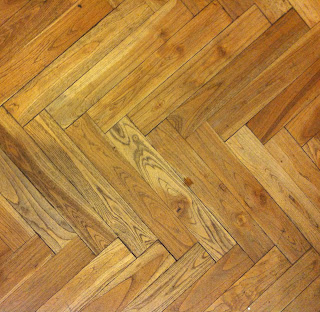Marble floor tile in herringbone pattern
Holy crap! Check out the floor.....
That was my initial response after walking into the Sea Catch Restaurant in Georgetown a couple of months ago. It was a rainy afternoon in our nation's capital - time for a snack and an adult beverage.
And, then.... a bar with miles of marble and a completely kick ass floor!
Sea Catch Restaurant, Georgetown, DC
I promptly took a photo of the floor with my phone. Sadly, after lunch and two drinks, my attention had been diverted to our next shopping excursion.
Recently, a phone conversation rambled toward the topic of herringbone brick patterns for fireplaces. They ARE simply spectacular and had recently been featured in one of the home magazines... Elle Decor, Architectural Digest, HGTV Magazine, Veranda, Southern Living, Traditional Home, or somewhere.
Herringbone pattern of the firebox brick (inside the fireplace)
Remembering the floor in that great DC restaurant, I realized that herringbone is such a magnificent design element... it is classic, timeless, yet wonderfully chic.
But, where did it originate????
Rome, Italy
As the old saying goes, "All roads lead to Rome."
Italian brick floor in Trajan's Market, Rome
Perhaps more interesting (in a slightly nerdy way) was that the fundamental design principle came from.... a fish!
Skeleton of fish from the Herring family.
Over the years, the Romans found that when the chevrons were pointed in the direction of traffic, the roads were extremely stable. The official terminology for this type of interlocking construction is, opus spicatum, or “spiked work.”
Unfortunately, that brings up another topic in this discussion of zigzags. What is the difference between chevron and herringbone patterns?
Simply illustrated, chevron is an inverted V-pattern; it is THE classic zigzag motif. Herringbone, on the other hand, resembles a broken zigzag.
Confused???
Here are some examples for clarification. Start with chevron.........
Missoni pillow in classic chevron pattern
Chevron rugs by Madeline Weinrib

More examples of chevron patterns from Missoni, Dash & Albert, Urban Outfitters, and Company C
Chevron parquet flooring by Atelier de Granges
Paris apartment with fabulous chevron wood flooring
Now to herringbone. Remember, the idea is a "broken" or "interwoven" zigzag.
Plates in herringbone pattern
Herringbone fabric in wool
Brick pavers in herringbone pattern
New Orleans Convention Center, NOLA
Herringbone pattern wood floor
So, you get the idea.
Since chevron is rather trendy right now, utilizing it for rugs and pillows seems like a good idea. For the more permanent features of the home (back splashes, flooring, fireplace stonework, walkways), keep it traditional and classic. A few great herringbone examples include:
Amazing floors featured in Style Hive
Herringbone floor in an apartment by Miles Redd
Herringbone brick in curved indoor hallway in Valentino's home
The only caveat to my love of herringbone is that the stone, brick, wood, or tile needs to be fairly consistent in pattern, grain, and color....otherwise it can look a tad busy! Unless your aesthetic is Jonathan Adler meets Liberace with a touch of Vegas show-girl, less is more.
Love the floor, but.... it only works because everything else in that room is VERY understated.
The idea of designing a herringbone pattern gives me geometry flashbacks.
As you might have figured out, herringbone just does it for me! Currently, it is the screen saver on my iPhone and the pattern of one of my favorite cashmere scarves. (Well... a cashmere scarf is much cheaper than an entire Paris apartment!) Even this photo of the floor from ABC Carpet & Home just makes me smile.
Sixth floor, ABC Carpet & Home, NYC
Now you know this history of herringbone. Happy Sunday.... and I need another cup of coffee!




















